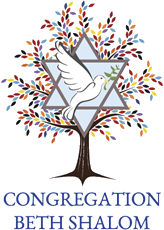In all my years in school, fully a period of decades, I had one homework assignment that was so unique and so pleasurable, I will never forget it. Nearly forty years ago, when I was at the University of Toronto, my Advanced Biblical Hebrew Literature professor walked in and handed each (all five) of us tickets for a Toronto Maple Leafs hockey game. Hooray!!!
However, we were not going just to enjoy the game. We had an assignment. We were to return to our next class session with a list of each and every ritual we saw during the game. The student who had the most rituals would win the grand prize — two more hockey tickets. How cool was that?
Each of us five students guarded our lists carefully. I was sure that my list of 14 rituals would outshine everyone else’s. Wrong! One classmate had 16 on his list, and another had 15 on her list — all of which paled in comparison to the professor’s list of 37. Thirty-seven!!!
The lesson was so very clear. We live lives immersed in all kinds of ritual – religious ritual, family ritual, shopping ritual, dining ritual, and on and on. Most of the time we are not even aware that we are doing things as we are “supposed” to. But when someone violates the ritual, everyone recognizes it and we feel uncomfortable without even knowing why.
This is a long introduction to one of the rituals which my mother and I shared throughout our time together. But not only that: the source of this ritual goes all the way back to Moshe Rabbeinu, to the very time of Moses.
THE MOTHER-STANLEY RITUAL FOR A VISIT:
Baruch Ha-Shem (thank God) you got here safely.
How do you feel?
My God you’re fat!
Can I fix you a sandwich?
For the longest time I thought that this was just a quirk in my mother’s family’s mental health. However, my class in Toronto helped me to realize that there are so many rituals going on everywhere we live and in whatever we do. I had just not been aware of how pervasive such rituals are.
This is where Moses comes in. The Book of Deuteronomy is a long and painful retelling of everything Israel did wrong from the time of the Exodus, as Israel was poised to enter Canaan, until the present. Sin after sin, mistake after mistake, rebellion after rebellion—each one is retold.
And right in the middle of this litany of errors, Moses says to Israel that it will grow to be more than 1,000 times mightier than it was then. God offered growth and power—my mother offered a sandwich.
These “peace offerings”—as they were—serve a very important purpose. What God said Israel had done in the wilderness was what Israel had, in fact, done. What my mother said about my girth was also a statement of fact.
But all the facts in the world do not negate the essence of our relationships. Our relationship with the Divine is not altered by our ritualistic missteps. We are not abandoned if we bow to the right instead of to the left, or take four steps back instead of three. Nor should our relationships with others in this world suffer only because we are human and have erred.
B’Shalom
Rabbi Stanley Halpern
